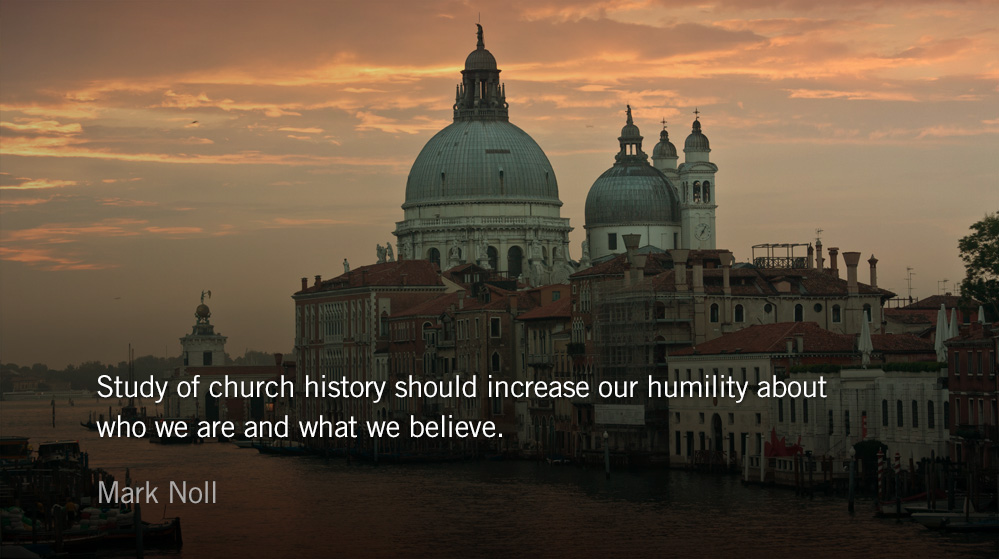The Summer Reading Series is designed to equip our growing community with curated book recommendations that shape faith and sharpen cultural insight.
By Mark Noll
One of the most interesting ways to grasp a general sense of Christian history is to examine critical turning points in that story. But why, the question might be raised, be concerned about church history at all? Why think that any sort of knowledge about the Christian past—which can so easily seem obscure, petty, confusing, or complex—should interest or assist Christian believers in the present?
Studying the history of Christianity provides repeated, concrete demonstration concerning the irreducibly historical character of the Christian faith.
Since Christianity is not captured simply in a set of dogmas, a moral code, or a picture of the universe—though Christianity certainly involves dogmas, morality, and a worldview—since Christianity is ultimately the acts of God in time and space, centrally the acts of God in Christ, then to study the history of Christianity is continually to remember the historical character of Christian faith.
To be sure, there are dangers in taking history seriously. Throughout the entire history of Christianity, problems have constantly arisen when believers equate the human acts of the church with the acts of God, when Christians assume that using the name of God to justify their actions in space and time is the same as God himself acting. But that danger grows from a positive reality: to be a Christian is to have an infinite stake in the events of God-in-Christ, with all that led up to the incarnation, crucifixion, resurrection, and ascension, and all that now flows from those realities in the shape of the church’s history.
Study of church history should increase our humility about who we are and what we believe. Even more than humility, a study of the Christian past can also engender profound gratitude. Despite a dazzling array of God-honoring triumphs and despite a wide and deep record of godliness among believers of high estate and low, the sad fact is that the church’s history is often a sordid, disgusting tale.
Once students push beyond sanitized versions of Christian history to realistic study, it is clear that self-seeking, rebellion, despotism, pettiness, indolence, cowardice, murder (though dignified with God-talk), and the lust for power along with all other lusts have flourished in the church almost as ignobly as in the world at large.
Despite a tangled history, the promise of the Savior concerning the church has been fulfilled: “the gates of Hades will not overcome it.” But precisely that tangled history points to the reason why Christianity has endured: “I will build my church.”
*Excerpt from Mark Noll, Turning Points: Decisive Moments in the History of Christianity. Baker Academic, 2012. Brief summary at Publisher’s Weekly, lengthier summary on Study God’s Word Together blog.
Today’s Reading
Isaiah 41 (Listen – 5:00)
Revelation 11 (Listen – 3:24)






